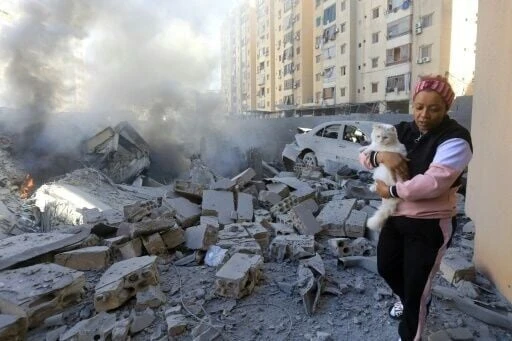Speaking to reporters, Antonio Guterres said he had written to Netanyahu about draft laws in the Israeli parliament that "could prevent UNRWA from continuing its essential work in the Occupied Palestinian Territory."
The Foreign Affairs and Defense Committee in Israel's parliament, the Knesset, approved two bills on Sunday essentially aimed at ending UNRWA's activity and privileges in Israel.
One bill seeks to prevent UNRWA from operating any institution or providing any services or activity in Israel. The second bill deems that UNRWA workers would not enjoy immunity or special rights enjoyed by other UN workers in Israel.
"It would be a catastrophe in what is already an unmitigated disaster," Guterres said, adding that "the legislation would likely deal a terrible blow to the international humanitarian response in Gaza."
UNRWA and the wider humanitarian response amid Israel's war against Hamas has been a flashpoint during the conflict, with Israeli authorities restricting aid flows into Gaza.
The agency saw funding cuts earlier this year after Israel accused more than a dozen of its 13,000 Gaza employees of involvement in the October 7 attack by Hamas.
A series of probes, including one led by former French foreign minister Catherine Colonna, found some "neutrality related issues" at UNRWA but stressed that Israel had not provided evidence for its chief allegations.
An internal probe published last month found that nine employees "may have been involved in the armed attacks of 7 October."
The barrage of accusations has continued, with Israel charging that the agency employs "hundreds of Hamas members and even military wing operatives" in Gaza.
At least 223 UNRWA staff have been killed and two-thirds of the agency's facilities in Gaza have been damaged and destroyed since the start of the Gaza war, its head, Philippe Lazzarini, said last month.
Guterres also criticized the constant evacuation orders given by Israel to Palestinian civilians living in Gaza.
"Around 400,000 people are being pressed yet again to move south to an area that is overcrowded, polluted and lacking the basics for survival," Guterres said.
"The conclusion is clear: there is something fundamentally wrong in the way this war is being conducted," he said.
"Ordering civilians to evacuate does not keep them safe if they have no safe place to go and no shelter, food, medicine or water."


